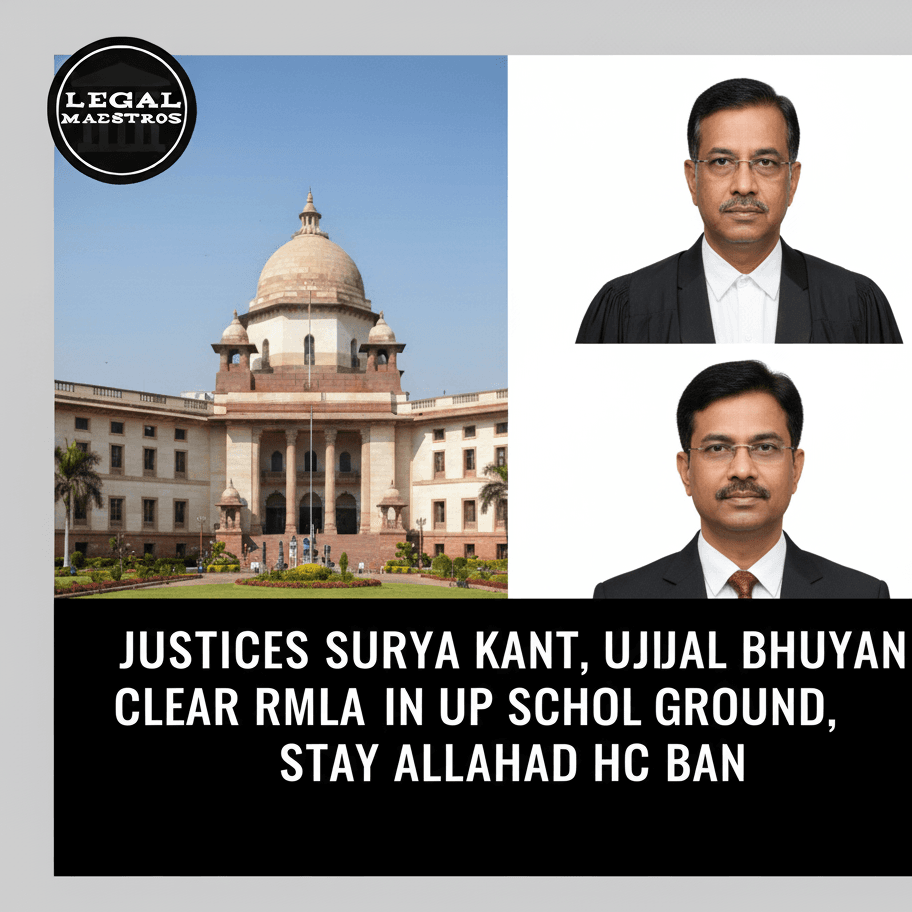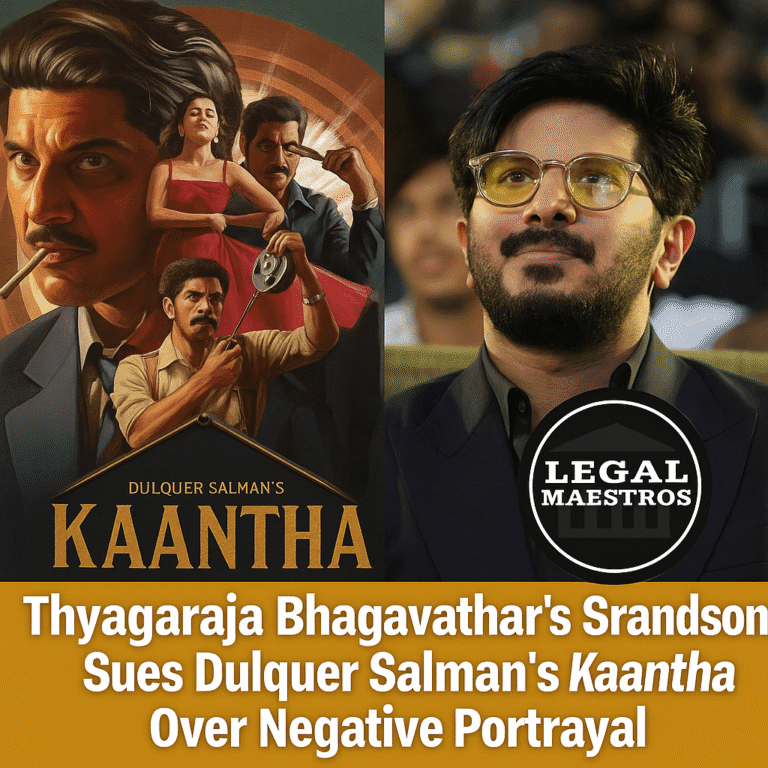
Justices Surya Kant, Ujjal Bhuyan Clear Ram Lila in UP School Ground, Stay Allahabad HC Ban
Supreme Court Steps In on Ram Lila Dispute
The High Court had previously placed a total restriction on the use of school premises to conduct the annual religious and cultural event and this is where the aspect of tradition and the use of the public spaces came up.
The ruling of the highest court of the country enables the Ram Lila to take place in the traditional location of the same this year giving a temporary relief to the organizers and the locals. The timing of the ruling was timely to the festive season as it brings out the involvement of judiciary to reconcile ancient cultural customs with the law.
The Heart of the Dispute
The dispute in a court of law started by filing a Public Interest Litigation (PIL) in the Allahabad High Court. The petitioner was claiming that the educational institution should not be the factor on which the Ram Lila should not be held. The major issue brought up was that conducting a religious event on school grounds was not right and was likely to interfere with the learning process. The PIL wanted to ban it permanently, proposing that the schools should not be intertwined with such activities anymore as doing so would imply the maintenance of a secular character of schools.
For any queries or to publish an article or post or advertisement on our platform, do call at +91 6377460764 or email us at contact@legalmaestros.com.
It was an argument that made a direct challenge to a tradition, which has been a part and parcel of the local community more than sixty years. The Shri Ramleela Committee that had been in charge of arranging the festival was at a bad place. The Dussehra festival festivities of the Shri Gandhi Inter College ground had been a big part of the cultural life of the town since time immemorial and with the abrupt legal challenge the ancient tradition could have been put to an end.
The committee stood on the ground that the event was more of a cultural than of a religious celebration that left people of all walks of life united. They argued that the Ram Lila has never been conducted during school time, but rather during holidays and so no learning process was at any time interrupted. The conflict therefore turned out to be a classic scenario of conflict between modern laws and the community customs.
The High Court’s Permanent Ban
The Allahabad High Court gave a verdict in favour of the petitioner after listening to the arguments. The court had granted a permanent injunction, a court decree to prevent the practice being continued. This implied that the Shri Ramleela Committee could not legally ever conduct the Ram Lila on the school premises once again. The argument by the High Court must have been founded on the aspect of maintaining the schools without religious rites.
For any queries or to publish an article or post or advertisement on our platform, do call at +91 6377460764 or email us at contact@legalmaestros.com.
The decision put the major role of the school as a learning institution first and tried to maintain the distinct separation between education and religion. The court might have believed that giving such an event, irrespective of its history, the chance to precede was that other groups might also need to use school grounds to conduct their activities that may result in conflicts and disruptive activities.
This move was a great setback to the organizers and the locals of Dadri. As the Dussehra festival drew closer, they were attacked with the prospect of not being in a position to celebrate Ram Lila at its traditional venue. This decision, despite its sound legal foundations, could not seem to take into consideration the circumstances of this particular culture and decades-long peaceful history of the event on that specific place.
An Appeal for Tradition
Seeing that their customary celebrations were completely blocked, Shri Ramleela Committee resolved to bring the case to the top court in this country, the Supreme Court. They mounted a challenge to the blanket ban given by Allahabad High Court. Their law firm was ready to make a case that the order of the High Court was too harsh and failed to take into account the specifics of the case.
For any queries or to publish an article or post or advertisement on our platform, do call at +91 6377460764 or email us at contact@legalmaestros.com.
The committee in their complaint has highlighted the importance of the event in history taking the place where it is being conducted which is the Shri Gandhi Inter College ground. They claimed that the Ram Lila was not something new imposed upon the people but rather it was part of the local culture and it had been practiced without any form of problem over the past 60 years. They repeated that the event did not disrupt the school schedule and actually made them feel like a community and a continuation of the culture.
Probably the attorneys representing the committee also mentioned that most of the public spaces in India such as school premises are usually used during community events provided that they do not interfere with the main intention of the space. They asked the Supreme Court to take into account the social fabric and the feelings of the people who were closely attached to this yearly custom, and to forget about the strict order of the High Court.
The Supreme Court’s Interim Relief
The Supreme Court bench of Justice Surya Kant and Justice Ujjal Bhuyan, hearing the appeal, upheld a different opinion with the High Court. They recognised the protracted and sustained tradition of the Ram Lila celebrations at the school ground. The justices noted that this was not a case of a new tradition but an old one was being discontinued. According to the court, the event had been conducted in peace over 60 years.
For any queries or to publish an article or post or advertisement on our platform, do call at +91 6377460764 or email us at contact@legalmaestros.com.
Having listened to the submissions, the Supreme Court stayed the decision of the Allahabad High Court. This interim order effectively halted this ban and the Shri Ramleela Committee proceeded with the annual celebrations, this year, at the college ground. According to the bench, it was not better to halt a centuries-old practice just ahead of the festival, so a more moderate course had to be taken.



![JOB POST: Junior Associate at ASM Law Chambers, Jaipur [Freshers]](https://legalmaestros.com/wp-content/uploads/2025/11/Gemini_Generated_Image_8wrxer8wrxer8wrx-768x708.png)

